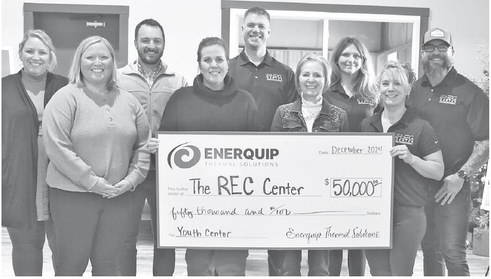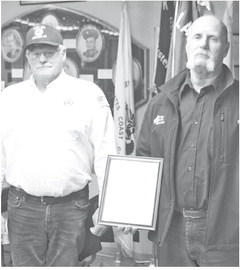Commission seeks to pool grant funds to help fire department
Member municipalities are hoping that by working together they can maximize the amount of federal grant money to help local residents.
At the September 30 meeting of the Medford Area Fire Commission, chairman Lester Lewis proposed each of the towns and the city could pool any remaining Routes to Recovery grant money to be able to make larger purchases for COVID-19 related purchases for the fire department.
The $200 million “Routes to Recovery: Local Government Aid Grants” program was aimed at helping local governments address some of their most urgent and unique COVID-19 recovery needs. Administered by the Department of Administration (DOA), the grants were allocated to every Wisconsin county, city, village, town, and federally recognized tribe based on population size and other factors with each entity receiving at least $5,000. The program is funded by a portion of the federal assistance given to Wisconsin under the federal Coronavirus Aid, Relief, and Economic Security (CARES) Act.
The funds were used by municipalities to purchase equipment needed to hold elections and conduct business. Under the program, municipalities purchase the items and then submit for reimbursement.
The challenge, explained Lewis, is that many municipalities have made their needed purchases and have money left over and only a few more weeks to be able to spend it before the program ends.
Lewis’ proposal is for the local governments to assign their remaining grant allotment to the city of Medford to make purchases to benefit the fire department.
Fire Chief Mike Filas identified the following items as part of a wish list of non-budgeted grant eligible expenses: The MSA G1 APR (Air Purifying Respirator) adapter with P100 filters. Provides firefighters responding to calls with potential COVID related exposures full face protection at a higher level of protection then a standard N95 mask will. Price is 35 units for $5,950.
P100 filters for the MSA G1 APR adapter, price for 100 cartridges is $1,100.
G1 Face-piece Cleaner to cover anticipated need for additional face piece cleaning. Price for 3 – 32 ounce containers is $150.
G1 Face-piece Wipes to cover anticipated need for additional face piece cleaning. Price is for 6 packs of 100 wipes $180.
Additional Washing Machine for turn out gear at the fire hall to be able to provide faster turnaround of PPE potentially contaminated based on the call responding to. Cost is $4,495.
Dryer for turn out gear at the fire hall to be able to provide faster turnaround of PPE potentially contaminated based on the call responding to. Cost is for one unit capable of drying two sets of gear is $4,300.
Cleaning and Sanitizing products for the fire hall at $1,200.
Bath Towels to encourage potentially exposed firefi ghters to utilize showers at the fire hall rather than cleaning up at home. Price is for 60 bath size towels $300.
In addition, Filas noted the commission purchased additional air tanks totalling $56,000 earlier this year. These tanks were purchased outside of the normal budget and fall under the potential guidelines of the grant program because they would be used to provide additional air supply for firefighters. If approved as a granteligible expense this would return that money to the fire department.
Lewis noted any of the grant money that goes unspent will be allocated toward other areas of the state. Lewis said that any municipality should first look at their own needs and then if they have any money left over consider pooling it with the city.
“Every town will have to make this decision,” Lewis said, noting the Town of Molitor has about $4,000 of grant allotment they could allocate over to the city for this purpose.
Discussion focused on the mechanics of the transfer, since no actual money is changing hands. It would simply create a larger pool for one municipality to make the purchases.
Lewis said the city makes the most sense because it has more reserves than the town when it comes to making the purchases and waiting on reimbursement.
The biggest risk is that the Department of Administration could reject an expense as being ineligible. Fear of having items rejected for reimbursement has kept some municipalities from utilizing the funds.
Discussion focused on what would happen if the purchases were made and the grant was denied. Under the plan to pool the allotment, Lewis explained it would be the city of Medford that would be taking the risk.
Commission member Brenda Hedlund noted the maximum actual risk is less than $18,000 since the commission already spent the $56,000 from the fire department funds to purchase the air bottles for the breathing apparatus.
There was no action at the commission level, but each town was asked to bring it to their board meetings over the next few weeks and vote to assign their unused grant dollars to the city of Medford to spend.



